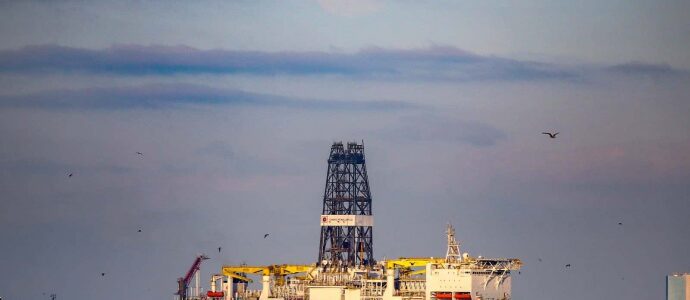
Ankara intends to produce oil and gas in the waters of Libya within the framework of the energy agreement concluded by Turkey with this country, Turkish President Recep Tayyip Erdogan said.
“After the agreement on hydrocarbons signed by us with Libya, we will cooperate in a new area – in the extraction of oil and other resources from the Libyan continental shelf,” Bloomberg quotes him as saying.
Erdogan also announced plans to double the capacity of the Trans-Anatolian gas pipeline (TANAP), which runs from Azerbaijan through Georgia and Turkey to Greece.
Bloomberg recalls that Ankara and the administration of Abdel Hamid al-Dbeiba concluded this agreement last week: he was supposed to leave the post of prime minister after December 25, 2021, but did not do this, citing the disruption of the presidential elections in Libya. As a result, the Prime Minister of another Libyan government, Fathi Bashaga, rejected this agreement, emphasizing that al-Dbeiba does not have the authority to conclude agreements with foreign states.
At the same time, the current agreements are based on the 2019 agreement that Ankara concluded with the previous internationally recognized government of Libya, and to which Turkey provided military assistance in the confrontation with the forces of Marshal Khalifa Haftar.
In turn, the EU said that the new agreement does not comply with the UN Convention on the Law of the Sea and violates the interests of third parties. Also, Greece, Cyprus and Egypt regard the agreement as an attempt by Turkey to dominate the waters of the region.
In Libya, for a long time, there were two bodies of executive power in parallel: the Government of National Accord in Tripoli, in the west of the country, and an interim cabinet in the east of the country, supported by the army of Marshal Khalifa Haftar. According to Western media, Haftar’s forces were supported by Russia, France, Saudi Arabia, the United Arab Emirates, Egypt, Greece and Cyprus. On the side of the government in Tripoli, in turn, were Turkey, Qatar and Italy.
In October 2021, in Geneva, representatives of the warring parties signed an agreement on a permanent ceasefire. The presidential elections in Libya, the first after the overthrow and assassination of Muammar Gaddafi, were scheduled for December 24, 2021, but in the end the vote did not take place. This was due to controversy surrounding the electoral law.
GAS, OIL, PRODUCTION, TURKEY